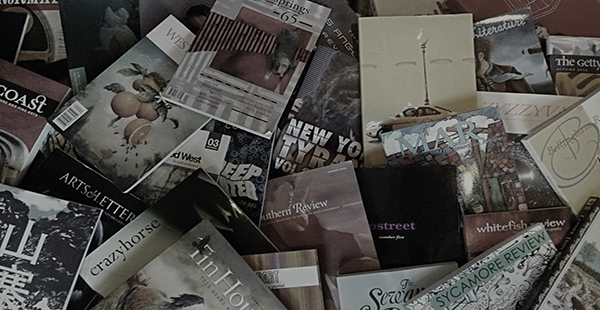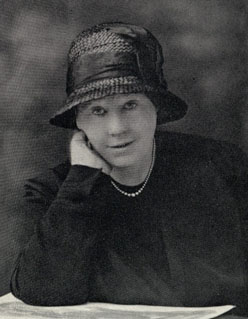The Best Short Story I Read in a Lit Mag This Week: “Golden Land” by Sunisa Nardone

The ways in which we humans find our sense of community and identity—nationality, race, religion, class, family etc.—are often also what make connecting with people that don’t share our backgrounds more difficult. Sunisa Nardone’s “Golden Land” (Atlas and Alice) explores the many obstacles facing strangers struggling to connect while awaiting departure from a Bangkok airport.
In the first few sentences of the story, Nardone presents the narrator’s internal conflict, brought on by the appearance of a woman she meets at the airport.
“She couldn’t know anything about the Southern Hemisphere, dressed as she is. The feeling struggles in me, that flutter of judgment and shame, seeing my countrywoman dressed so—.
A foreigner would no doubt mistake her for young and foolish but as a Thai woman myself I can tell that this long-limbed girl is actually in her late 30s, just about my age. Up-cut shorts showing a crescent of ass flesh befits no respectable lady. And here we are at the gate for Thai Airways to fly us to Melbourne in June, hot season in Bangkok but the beginning of real winter Down Under.”
The narrator is concerned for the woman’s well-being—she’s not dressed for the cold—yet she’s also irritated that she’s not dressed more respectfully. The rest of the passengers take exception as well; we find later that they “…won’t socialize with her…”
Nardone expands on this conflict between tradition and modernity—shown through the woman’s dress—in the narrator’s depiction of both the airport and the city. Suvarnabhumi, the name of the airport, means Golden Land, but the narrator tells us “that idea is a mirage.” Beneath its posh appearance is a history of corruption at all levels of government. And the city itself has gone through its own changes. “Bangkok in my day was not this way at all. I mean modern.”
Showing these conflicts at work in the larger context brings gravity to the internal conflict of the narrator, which Nardone continues to develop on a personal level between the women. Notice below how the stranger’s poor English and lack of social mores provoke both empathy and discomfort within the narrator.
“She says in halting, stuttering English: “Are you going to Australia?”
My, but her accent is terrible. Aus-tay-leeee-a she says slowly, the way Thai people say it, with that strange lilt. She mouths the word carefully—must not say it much.
“Yes,” I say, and because I can’t help myself: “Do you know it is winter in Melbourne? Are you going there?”
I’ve spoken in English to maintain our difference. But I have gone too fast for her. I slow down, say it again. “Winter… in Melbourne…” and when I wrap my arms around my body and shiver, she understands. She pours her trust into me like a child, so desperate.”
The narrator struggles to try to connect while at the same time trying to maintain her own status (also, of note later, notice her reference to the stranger’s trust as child-like). Now midway through, I perceive that Nardone could have taken this story into a more allegorical realm, focusing more globally on the philosophical questions she’s exploring. Instead, she dives closer into the characters lives, contrasting the narrator and the stranger’s histories, which foil a simpler allegorical reading.
The narrator, we discover, lives in Melbourne, and years ago moved there to gain access to better schools and greater opportunities. She may have grown up more traditionally, but she has, in her own words, already converted to the modern way of life. The tradition vs. modernity thread gives way to a new seam of inquiry (as well as an obstacle in their relationship): class. Due in large part to the narrator’s privileged education, she has the wherewithal to know how to skillfully move between both the traditional and modern worlds as well as between Thai and Australian culture. Tip, we discover, isn’t from privilege, and she realizes this, and can’t help but show it (and is at times proud of it). But—like the narrator—she’s taking the opportunity to escape, though in a very different manner: through appearances. She’s beautiful. A man she met while working in a restaurant has convinced her to move to Melbourne.
The narrator recognizes how their paths mirror each other, and slowly her empathy for her—who we now know calls herself Tip—begins to win over the desire to maintain appearances.
“She doesn’t let up in her effort to communicate with me. It involves many gestures. We bungle on in English. I am torn between the need to break off our conversation because I should not associate with her, but my fascination, also protectiveness, have taken over. My feeling toward her softens. She is trying so hard with these clothes. Look how she speaks, how she holds herself. I am reckless with desire to care for someone.”
The story turns again here, once they’ve boarded the plane. The question is not longer whether they will connect. It’s now why the narrator feels so strongly the need to care for Tip.
“I could not entertain the possibility of children. They would have required a keen interest by the opposite sex that I was not able to attract. To secure scholarships to good schools I had to vault over boys from grade school through college. This was most unseemly. By the time my flabby body and sharpened mind made it to Australia, all my intellect went to the bureaucracy of visa forms…”
There is a cost of conversion for Tip as well. When the plane lands, the narrator is able to meet Tip’s beau, we discover that he is an elderly man with little time left to live. We are left to imagine that Tip will be, within a few years time, little more than a bedside nurse. The narrator wonders what will happen then, when the “mirage fades?” The narrator’s last line is simple and personal and telling.
“I hope she knows to look for me.”
Friendship. With this, Nardone brings the story around full circle. Throughout all obstacles this story explores—culture, class, history—at its root it’s about two women struggling to connect with each other. That struggle betrays a need that, in the end, is more powerful than the many forces trying to prevent it.


